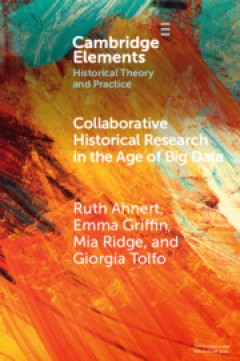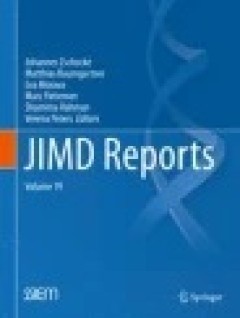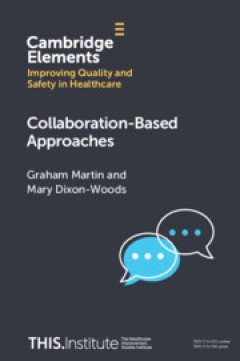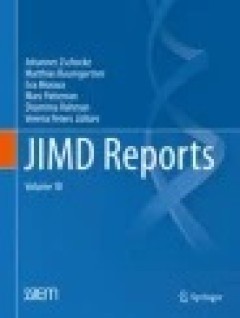Filter by

Collaborative Historical Research in the Age of Big Data: Lessons from an Int…
Living with Machines is the largest digital humanities project ever funded in the UK. The project brought together a team of twenty-three researchers to leverage more than twenty-years' worth of digitisation projects in order to deepen our understanding of the impact of mechanisation on nineteenth-century Britain.
- Edition
- -
- ISBN/ISSN
- 9781009175548
- Collation
- -
- Series Title
- -
- Call Number
- 025.042 AHN c

JIMD Reports, Volume 19
JIMD Reports publishes case and short research reports in the area of inherited metabolic disorders. Case reports highlight some unusual or previously unrecorded feature relevant to the disorder, or serve as an important reminder of clinical or biochemical features of a Mendelian disorder.
- Edition
- -
- ISBN/ISSN
- 978-3-662-46190-7
- Collation
- -
- Series Title
- -
- Call Number
- -

Estuarine Morphodynamics of the Sunderbans
This book is the outcome of rigorous and continuous research work done by the author over about three decades on the open ecosystem and dynamic environment of the estuarine Sunderbans. The objective of this work is to identify the field and factors changing gradually upon this active delta over the years, decades and centuries. The deltaic Sunderbans yet not mature enough, has been changing in …
- Edition
- -
- ISBN/ISSN
- 978-3-319-11343-2
- Collation
- 26 b/w illustrations, 33 illustrations in colour
- Series Title
- -
- Call Number
- -

Collaboration-Based Approaches
Collaboration-based approaches to healthcare improvement attract much attention. They involve networks of people coming together to cooperate around a common interest, with shared goals of improving care and mutual learning. Longstanding examples of collaborative approaches have been associated with some success in improving outcomes and reducing harm.
- Edition
- -
- ISBN/ISSN
- 9781009236867
- Collation
- -
- Series Title
- -
- Call Number
- 307.1 MAR c

JIMD Reports, Volume 18
JIMD Reports publishes case and short research reports in the area of inherited metabolic disorders. Case reports highlight some unusual or previously unrecorded feature relevant to the disorder, or serve as an important reminder of clinical or biochemical features of a Mendelian disorder.
- Edition
- -
- ISBN/ISSN
- 978-3-662-44863-
- Collation
- -
- Series Title
- -
- Call Number
- -

Estimation and Testing Under Sparsity École d'Été de Probabilités de Sai…
Taking the Lasso method as its starting point, this book describes the main ingredients needed to study general loss functions and sparsity-inducing regularizers. It also provides a semi-parametric approach to establishing confidence intervals and tests. Sparsity-inducing methods have proven to be very useful in the analysis of high-dimensional data. Examples include the Lasso and group Lasso m…
- Edition
- -
- ISBN/ISSN
- 978-3-319-32774-7
- Collation
- XIII, 274
- Series Title
- -
- Call Number
- -

Co-Producing and Co-Designing
Many healthcare improvement approaches originated in manufacturing, where end users are framed as consumers. But in healthcare, greater recognition of the complexity of relationships between patients, staff, and services (beyond a provider-consumer exchange) is generating new insights and approaches to healthcare improvement informed directly by patient and staff experience.
- Edition
- -
- ISBN/ISSN
- 9781009237024
- Collation
- -
- Series Title
- -
- Call Number
- 658.57 ROB c

Estimation and Inferential Statistics
This book focuses on the meaning of statistical inference and estimation. Statistical inference is concerned with the problems of estimation of population parameters and testing hypotheses. Primarily aimed at undergraduate and postgraduate students of statistics, the book is also useful to professionals and researchers in statistical, medical, social and other disciplines. It discusses current …
- Edition
- -
- ISBN/ISSN
- 978-81-322-2514-0
- Collation
- 23 b/w illustrations
- Series Title
- -
- Call Number
- -

Educational measurement for applied researchers : theory into practice
This book is a valuable read for a diverse group of researchers and practitioners who analyze assessment data and construct test instruments. It focuses on the use of classical test theory (CTT) and item response theory (IRT), which are often required in the fields of psychology (e.g. for measuring psychological traits), health (e.g. for measuring the severity of disorders), and education (e.g.…
- Edition
- -
- ISBN/ISSN
- 9789811033025
- Collation
- 1 online resource (306 pages)
- Series Title
- -
- Call Number
- 370.72

The Practice of industrial Policy : Government—Business Coordination in Afr…
Much of the information relevant to policy formulation for industrial development is held by the private sector, not by public officials. There is, therefore, fairly broad agreement in the development literature that some form of structured engagement—often referred to as close or strategic coordination—between the public and private sectors is needed, to assist in the design of appropriate…
- Edition
- -
- ISBN/ISSN
- 9780198796954
- Collation
- -
- Series Title
- -
- Call Number
- 650 PRA
 Computer Science, Information & General Works
Computer Science, Information & General Works  Philosophy & Psychology
Philosophy & Psychology  Religion
Religion  Social Sciences
Social Sciences  Language
Language  Pure Science
Pure Science  Applied Sciences
Applied Sciences  Art & Recreation
Art & Recreation  Literature
Literature  History & Geography
History & Geography